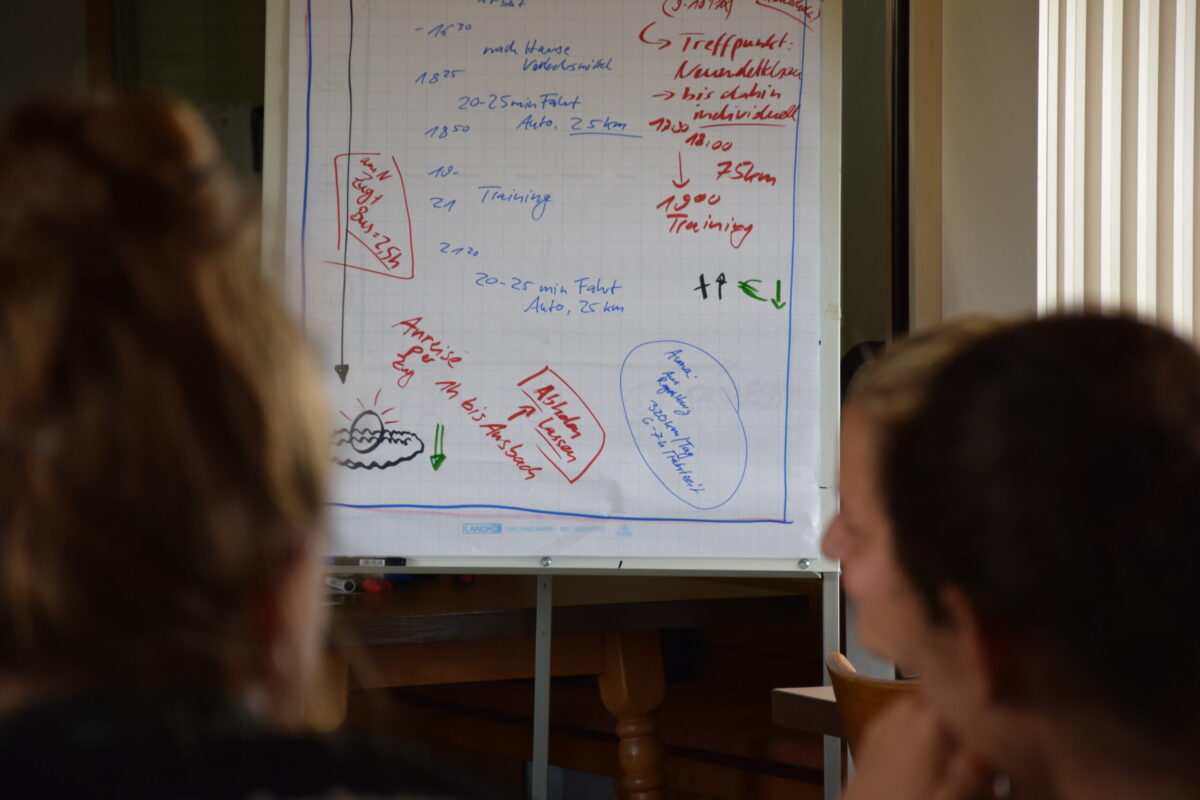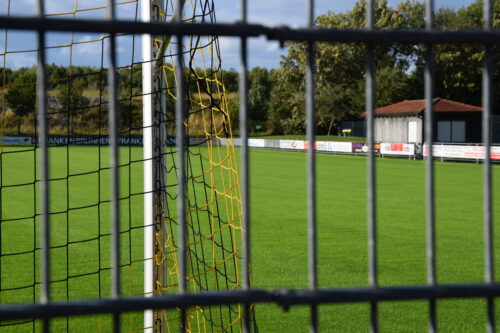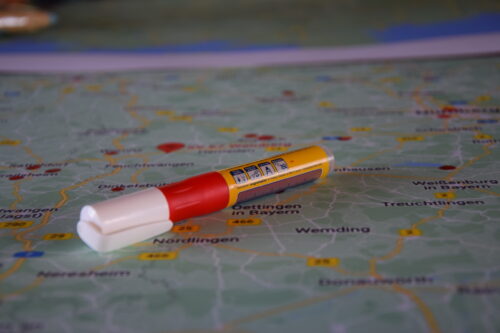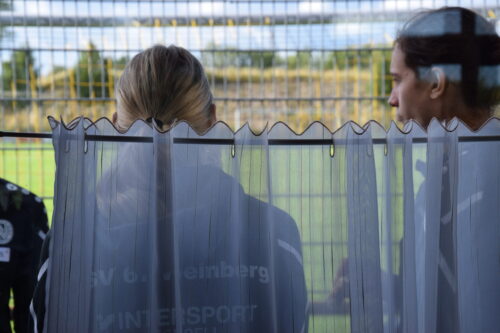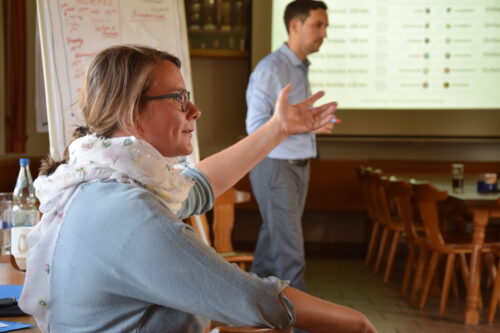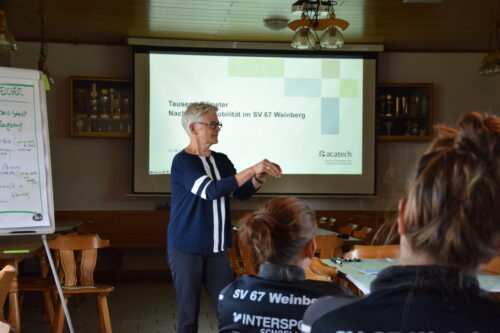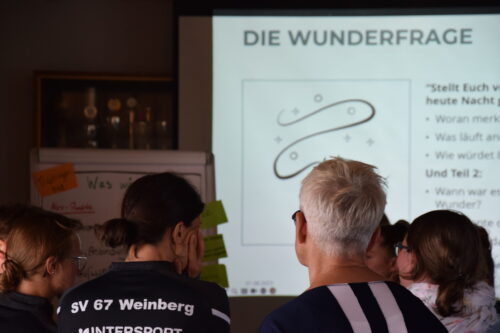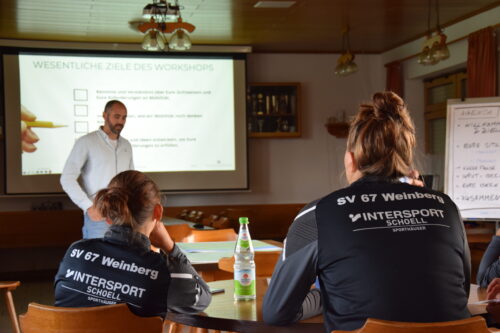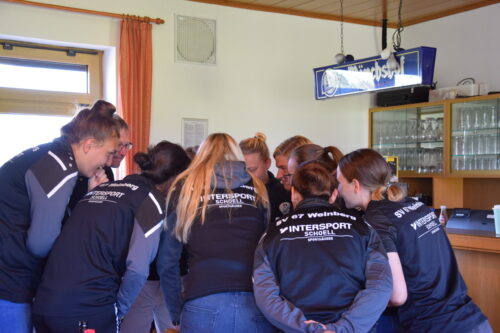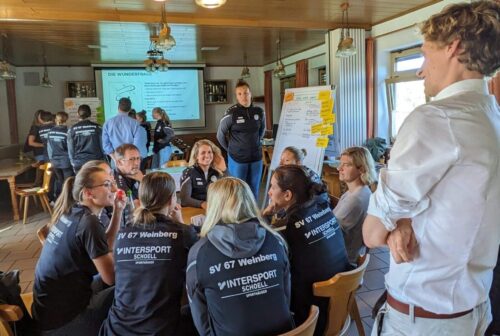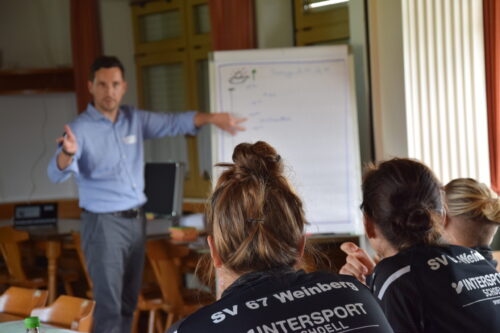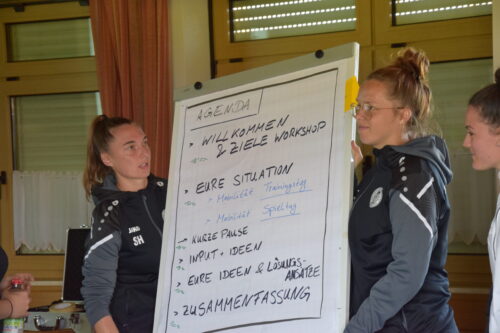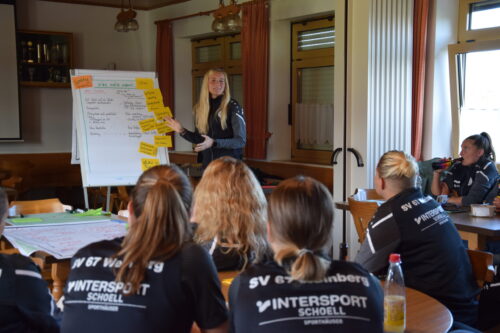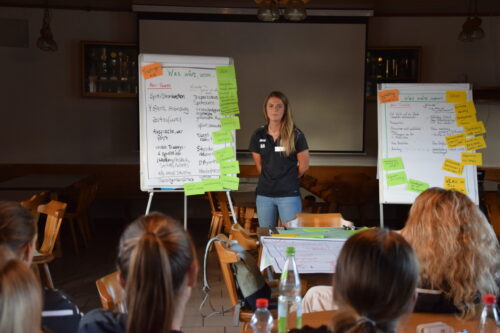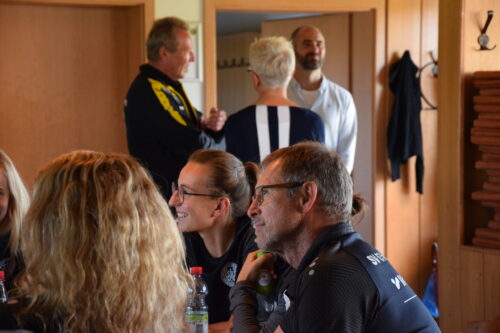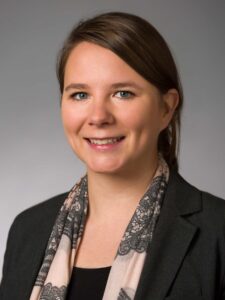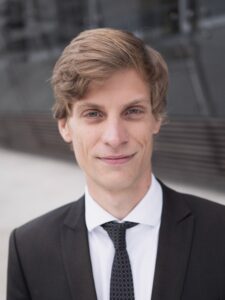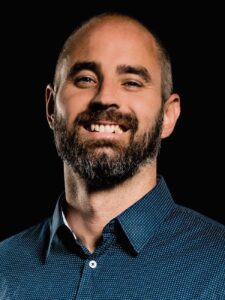Travelling 9000 kilometres within a season: acatech and the Philipp Lahm-Stiftung host a workshop on mobility in football
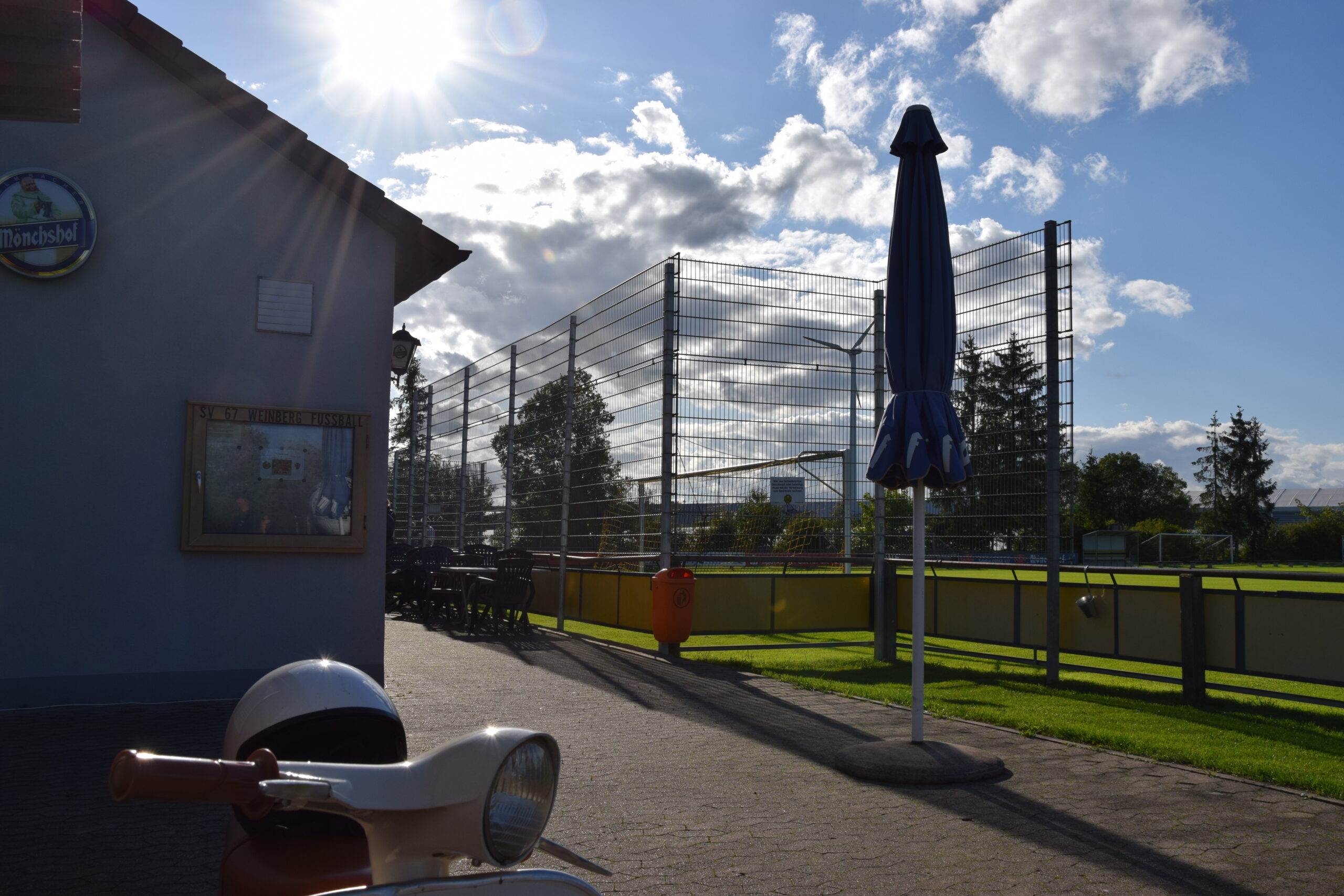
Munich, 03 August 2023
Football, Germany’s most popular sport, brings people together: the country’s around 25,000 football clubs are places for people to meet and be active. In the countryside in particular, people usually get to the grounds by car. This was a finding that emerged from a workshop involving the women’s soccer team of SV 67 Weinberg, held by acatech and the Philipp Lahm-Stiftung on 1 August. The aim of the event was to obtain a better understanding of the mobility challenges facing club football, to identify potential for improvement and to get ideas for future projects.
Weinberg in the west of Bavaria has a population of less than 1,000, a church, a primary school – and a football team in the Bundesliga. In the 2022/23 season, the women’s team of SV 67 Weinberg was promoted to the second division of the German national league of association football and since mid-August has been competing against heavyweights like Hamburger SV and Borussia Mönchengladbach. This is a challenge for the small club, and not only on the football field: to get to their away games the players and supporters have to travel sometimes hundreds of kilometres. Not only that but none of the top-flight footballers lives in Weinberg itself – many of them have to travel long distances to the four training sessions a week. The burden – financial, environmental and in terms of time – is huge.
Because these challenges affect a large number of other rural clubs besides SV Weinberg within the merit-based German football league system, acatech addressed the topic in a joint project with the Philipp Lahm-Stiftung. The female footballers of SV Weinberg took part in a workshop on 1 August to reflect on their mobility customs and then, in the subsequent creative process, set about coming up with new ideas for how to improve the situation.
Barbara Lenz, former Head of the Institute of Transport Research at the German Aerospace Center (DLR) and acatech member, as well as Yulika Zebuhr and Wolfgang Blumthaler from the Program Area “Future of Mobility” in the acatech Office gave their expertise on how mobility can be less time-consuming, easier on the pocket and more environmentally friendly. In their speeches, for example, the acatech mobility experts raised the possibility of requesting mobility resources available locally that are not in constant use (e.g. school buses). “Other possibilities include local companies sponsoring a charging station or introducing an incentive to reduce the number of kilometres travelled,” added transport researcher Barbara Lenz.
Inspired by these ideas, the footballers then moved on to the creative part of the workshop, tackling the scenarios “away game” and “training” in groups. Moderator Julian Van der Linden gathered together the ideas for improvement and proposed solutions, and he then asked the players to rate the “feasibility” and “originality” of the ideas. The most-promising solutions, as rated by the participants were:
- Networking with other clubs: One idea is engagement with other clubs. Clubs with difficult mobility conditions could engage with each other to find solutions to their challenges together, or to kick-start helpful alliances.
- Cost saving: Reducing the number of kilometres travelled by introducing a monetary incentive, e.g. funded by regional and national sponsors. One proposal is to partner up and use mobility resources collectively in order to lessen the financial burdens on club members due to individual mobility.
- Reduction of carbon emissions: Installation of charging stations at the grounds to ensure a more sustainable mobility. Some players would love the option of driving an electric car but would need the charging infrastructure to be put in place.
- Practicability: A football team routinely has quite a bit of kit to take with them – so its means of transport is a sufficiently large vehicle. A team bus with adequate features (e.g. WLAN, big-enough seats), so players can make better use of their time on long trips to away games (e.g. mobile work, game analysis).
acatech will incorporate the results of the workshop in the project “Integrated urban development and mobility planning” (ISM) (in German). In addition, acatech will stay in contact with the Philipp Lahm-Stiftung, which has already launched a platform for clubs to link in with one another, called treffpunkt fußball (in German), in relation to a potential follow-up project.


